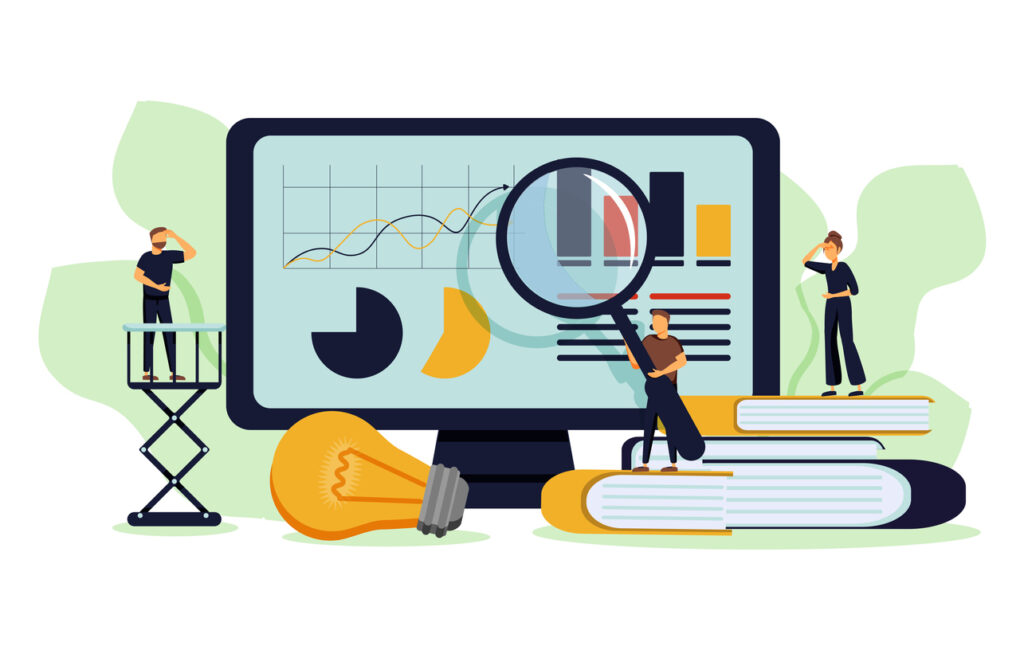To a large extent, the data that we gather, examine and use to help us make decisions has been kept in the hands of a few data experts with the appropriate skills and understanding to interpret and use to benefit their organisation. This is not surprising; the enormous growth of data has meant that most employees haven’t had the right training or skills to work effectively with data in order to extract the best value from it.
The goal with data democratisation is to enable the development of informed decision-making to a broader set of people.
This is changing, however, thanks to the advent of technologies that have the capability to support the sharing and interpretation of data for non-data experts. Advancements like these have made it possible to disseminate data throughout the organisation, and that’s a good thing. If implemented the right way, this democratisation of data has the potential to propel businesses to new levels of success.
Dissolving the bottleneck that often characterises the point of entry to a company’s data means that everyone should be able to use it to make informed decisions, faster. Fundamentally, devolving good data visualisation capabilities across an organisation allows decision makers to make more informed decisions, or to identify evolving trends and patterns that may constitute an opportunity or threat.
While data democratisation is certainly the key to transforming how organisations operate, there are challenges to be addressed, specifically around literacy. If you give a lot of data to someone who isn’t skilled at interpreting data, how would you expect that person to discover things?
I believe that’s where data literacy is becoming really important, and by this, I mean teaching the broader business what data is about, how you interact with it, how you analyse it, how you identify a trend, and what to do if you think you’ve found something.
The impact of the pandemic on data literacy
Interestingly, the pandemic has shone a spotlight on data and inadvertently played a role in elevating the data literacy of the population at large. Faced with the Covid-19 crisis that took hold over a year ago, many of us tuned into daily briefings to understand the spread of the virus through data and statistics. During these briefings, ‘descriptive analytic’ approaches have been used to present points and trends, regularly exposing the public to the world of data visualisation (charts showing Covid-19 numbers), summary statistics (such as an R number), predictions (forward-looking projections) and simulations (understanding the projected impact of approaches to ‘flatten the curve’).
This has certainly raised the bar in terms of data literacy, or at least expectations around the richness of information that could be presented to underpin a topic – the public has viewed the pandemic through the lens of data and statistics, gaining familiarity with the use of common analytic tools (charts, statistics, predictions) to better understand what is a complex topic.
Throughout the past year, we’ve seen the link between data and action, with phrases such as ‘we’ll follow the data’ being used to explain to the public the rationale behind the road map out of the pandemic. Indeed, both Boris Johnson and Nicola Sturgeon used the same phrase to say that they would be ‘led by data, not dates’ when it came to making decisions with regard to easing lockdown rules and re-opening the economy.
This has emphasised to the public the importance of a data-led approach when it comes to making informed decisions that are meaningful and valuable.
What data democratisation means for your business
As already mentioned, it is not merely sufficient to foster data literacy across the organisation for the purposes of interpreting data. The goal with data democratisation is to enable the development of informed decision-making to a broader set of people. In a crowded market place, this is what creates smarter, leaner organisations with a competitive edge.
Take the ‘left or right Twix’ ad campaign as an example. The campaign envisaged a world where two companies create the exact same product, using the same processes while selling to the same consumers. It’s a good metaphor for disruptive influences in markets being able to create companies that are very similar to established players, which then have to find some way to compete.
Looking to the future, businesses that succeed in the rich data environment of today are those that focus on instilling familiarity with data, and the means to understand and make informed decisions via data literacy programmes and the design of analytic workflows that put value and change at the heart of analytic initiatives.
Interested in this topic? Read Why data skills are at the cutting edge of learning.
To a large extent, the data that we gather, examine and use to help us make decisions has been kept in the hands of a few data experts with the appropriate skills and understanding to interpret and use to benefit their organisation. This is not surprising; the enormous growth of data has meant that most employees haven’t had the right training or skills to work effectively with data in order to extract the best value from it.
The goal with data democratisation is to enable the development of informed decision-making to a broader set of people.
This is changing, however, thanks to the advent of technologies that have the capability to support the sharing and interpretation of data for non-data experts. Advancements like these have made it possible to disseminate data throughout the organisation, and that’s a good thing. If implemented the right way, this democratisation of data has the potential to propel businesses to new levels of success.
Dissolving the bottleneck that often characterises the point of entry to a company’s data means that everyone should be able to use it to make informed decisions, faster. Fundamentally, devolving good data visualisation capabilities across an organisation allows decision makers to make more informed decisions, or to identify evolving trends and patterns that may constitute an opportunity or threat.
While data democratisation is certainly the key to transforming how organisations operate, there are challenges to be addressed, specifically around literacy. If you give a lot of data to someone who isn’t skilled at interpreting data, how would you expect that person to discover things?
I believe that’s where data literacy is becoming really important, and by this, I mean teaching the broader business what data is about, how you interact with it, how you analyse it, how you identify a trend, and what to do if you think you’ve found something.
The impact of the pandemic on data literacy
Interestingly, the pandemic has shone a spotlight on data and inadvertently played a role in elevating the data literacy of the population at large. Faced with the Covid-19 crisis that took hold over a year ago, many of us tuned into daily briefings to understand the spread of the virus through data and statistics. During these briefings, ‘descriptive analytic’ approaches have been used to present points and trends, regularly exposing the public to the world of data visualisation (charts showing Covid-19 numbers), summary statistics (such as an R number), predictions (forward-looking projections) and simulations (understanding the projected impact of approaches to ‘flatten the curve’).
This has certainly raised the bar in terms of data literacy, or at least expectations around the richness of information that could be presented to underpin a topic – the public has viewed the pandemic through the lens of data and statistics, gaining familiarity with the use of common analytic tools (charts, statistics, predictions) to better understand what is a complex topic.
Throughout the past year, we’ve seen the link between data and action, with phrases such as ‘we’ll follow the data’ being used to explain to the public the rationale behind the road map out of the pandemic. Indeed, both Boris Johnson and Nicola Sturgeon used the same phrase to say that they would be 'led by data, not dates' when it came to making decisions with regard to easing lockdown rules and re-opening the economy.
This has emphasised to the public the importance of a data-led approach when it comes to making informed decisions that are meaningful and valuable.
What data democratisation means for your business
As already mentioned, it is not merely sufficient to foster data literacy across the organisation for the purposes of interpreting data. The goal with data democratisation is to enable the development of informed decision-making to a broader set of people. In a crowded market place, this is what creates smarter, leaner organisations with a competitive edge.
Take the ‘left or right Twix’ ad campaign as an example. The campaign envisaged a world where two companies create the exact same product, using the same processes while selling to the same consumers. It’s a good metaphor for disruptive influences in markets being able to create companies that are very similar to established players, which then have to find some way to compete.
Looking to the future, businesses that succeed in the rich data environment of today are those that focus on instilling familiarity with data, and the means to understand and make informed decisions via data literacy programmes and the design of analytic workflows that put value and change at the heart of analytic initiatives.
Interested in this topic? Read Why data skills are at the cutting edge of learning.









